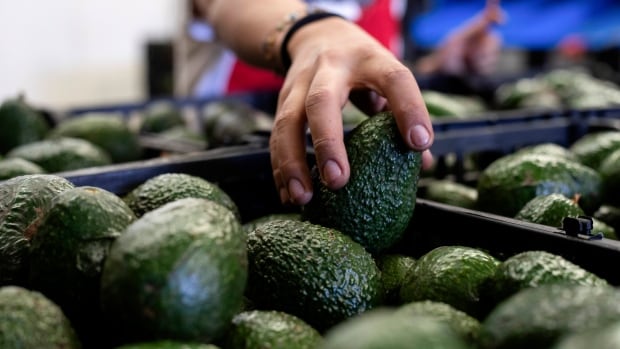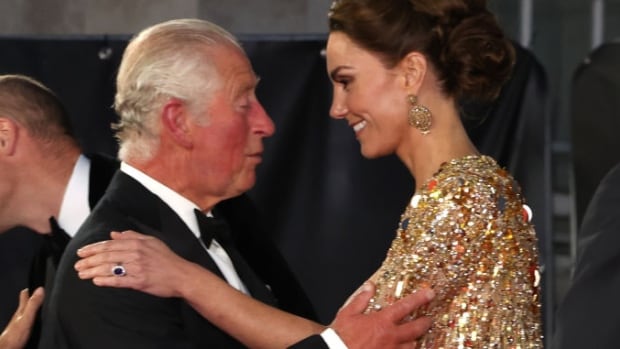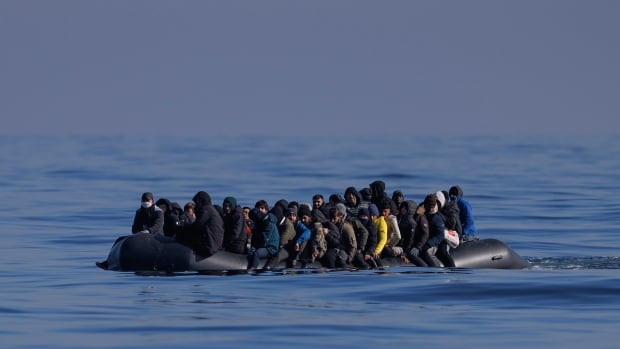With the Republican convention to formally nominate the party’s presidential candidate around the corner, Donald Trump will be making his vice-presidential running mate selection soon enough.
Trump, the 2016 outsider candidate who upended the party, chose Mike Pence then. That political alliance ended when Pence refused to heed Trump’s pleas to not officially certify Joe Biden’s 2020 win, despite being threatened by some Trump supporters during the Capitol insurrection.
WATCH l Trump raises spectre of violence if jailed:
Former U.S. president Donald Trump told Fox News he would be ‘OK’ with house arrest or jail time following his conviction, but he doesn’t think the public ‘would stand for it.’ Trump’s opponents considered the comments as being able to incite violence.
Political scientists have long said that vice-presidential choices have rarely had an impact on voting behaviour.
But the choices are always debated, and ahead of the July 15 convention in Milwaukee, Reuters has heard several names repeated based on conversations with nine people who have talked with Trump or his team in recent weeks, including donors, lobbyists and campaign operatives.
Here’s a closer look at some potential VP candidates:
Doug Burgum
Burgum, 67, was little known outside his native North Dakota when he launched a quixotic campaign for president last year. The governor of the 47th most populous state in the U.S. since 2016, he gained attention for offering cash in exchange for donations in a brief campaign that involved spending at least $12 million US of his own money.

There a number of factors that could endear him to the nominee: he endorsed Trump right away after dropping out of the presidential campaign, he was among a small number of Republicans to travel to New York and protest Trump’s trial outside the courthouse, and he is a real estate investor and billionaire who sold a software company to Microsoft in 2001.
Trivia: There has never been a VP from the Dakotas.
Tom Cotton
Cotton, 47, has been in the Senate since 2015, and prior to that put two years in as a House member. He serves on the judiciary, intelligence and armed services committees. Perhaps the candidate would like another face on those committees, as Cotton was not averse to occasionally voting against the first Trump administration.
Cotton received a law degree from Harvard and then enlisted in the U.S. army, seeing active combat duty but later encountering criticism for allegations he mischaracterized aspects of his deployment. His op-ed imploring the Trump administration to send in troops to quell 2020 protests over police brutality famously caused a rupture within the New York Times.
More recently, Cotton gave a stronger statement in supporting the results of the upcoming election compared to some other potential VP candidates.
Trivia: Cotton is six-foot-five. Would Trump pick a VP taller than he is?
Marco Rubio
Rubio, 53, ran for president in 2016 and found himself on the end of several Trump insults, but any hard feelings have long since been smoothed over. Rubio was a strong backer when Trump was president, voting against his two impeachments, and he compared Trump’s recent conviction to show trials in authoritarian countries. A Florida senator since 2010, he probably has the widest range of committee experience of any potential picks.
While going from being one of the most high-profile senators to a role that’s often overshadowed might seem like a step back, Rubio is no doubt mindful of history — Richard Nixon and George H.W. Bush raised their profiles vice-presidents and landed in the Oval Office after previous failed presidential bids.

Trump has ignored history, tradition and, his critics say, the constitution before. He would probably be doing so again by picking Rubio, as the 12th Amendment seems to indicate that a president and vice-president can’t reside in the same state.
Trivia: Rubio would be the first Cuban American and Hispanic vice-president.
Tim Scott
Scott, 58, could be the first Black man to serve as vice-president. That’s more than just trivia, as Scott has been hailed within the party for his ability to raise money and provide outreach to minority voters.
He ran for president this cycle but didn’t make it to the first contest in Iowa. He criticized Trump on the campaign trail for not supporting a federal abortion ban like he has. That’s unlikely to bother the base, as many Republican-led states have banned the procedure in the aftermath of the momentous 2022 Dobbs court ruling, but it could upset undecided women voters.
As well, Scott voted alongside previous Trump administration positions more so than some other names on this list, according to an analysis.
He’s been a longtime politician — a senator for over 10 years, a House member for two before that and a municipal politician in the more distant past.
Trivia: He’s getting married in the summer, meaning he wouldn’t be the first unwed vice-president since Charles Curtis (1929-1933).
Elise Stefanik
Stefanik, 39, is arguably the person whose moved the furthest from Trump criticism and skepticism eight years ago to staunch supporter now, echoing his controversial language that many 2021 Capitol riot criminal defendants are “political prisoners.”
Stefanik has White House experience, serving in George W. Bush’s administration as a junior staffer and has risen to become the fourth-ranking House Republican after being first elected to the chamber in 2014.

Stefanik has made a name for herself in recent months by forceful questioning of university presidents in their efforts to deal with antisemitism and pro-Palestinian protests that have sprung up since the Oct. 7 attack in Israel by Hamas. She then celebrated when two of those campus leaders resigned after enduring a firestorm of criticism for their answers to Stefanik and her Republican colleagues.
Trivia: She would be the first woman to serve as VP for the Republicans. She’d be the youngest VP in modern times, and second only to 36-year-old John Breckinridge in the 1820s.
J.D. Vance
Vance, 39, ticks a lot of boxes on paper for an ideal political candidate: military experience, a Yale law degree, tech experience in Silicon Valley and his name on a book that crossed over into the mainstream: Hillbilly Elegy: A Memoir of a Family and Culture in Crisis, later made into a movie.
Vance — who spoke to CBC in 2016 about his rural American upbringing — in the past criticized Trump for often offering easy, impractical answers to voters like his onetime neighbours, but he has been a full-throated supporter of the former president since launching his successful 2022 Senate bid.

Choosing Vance would lead to an expensive and potentially risky contest in what’s expected to be a razor-close 2024 U.S. Senate year. Ohio has leaned conservative in recent years, but is not as solidly Republican as the states of Cotton, Rubio and Scott.
Trivia: Vance has been bearded in recent years and that has been out of vogue for the top ticket since the early 1900s. Trump famously loathed former White House adviser John Bolton’s mustache.






